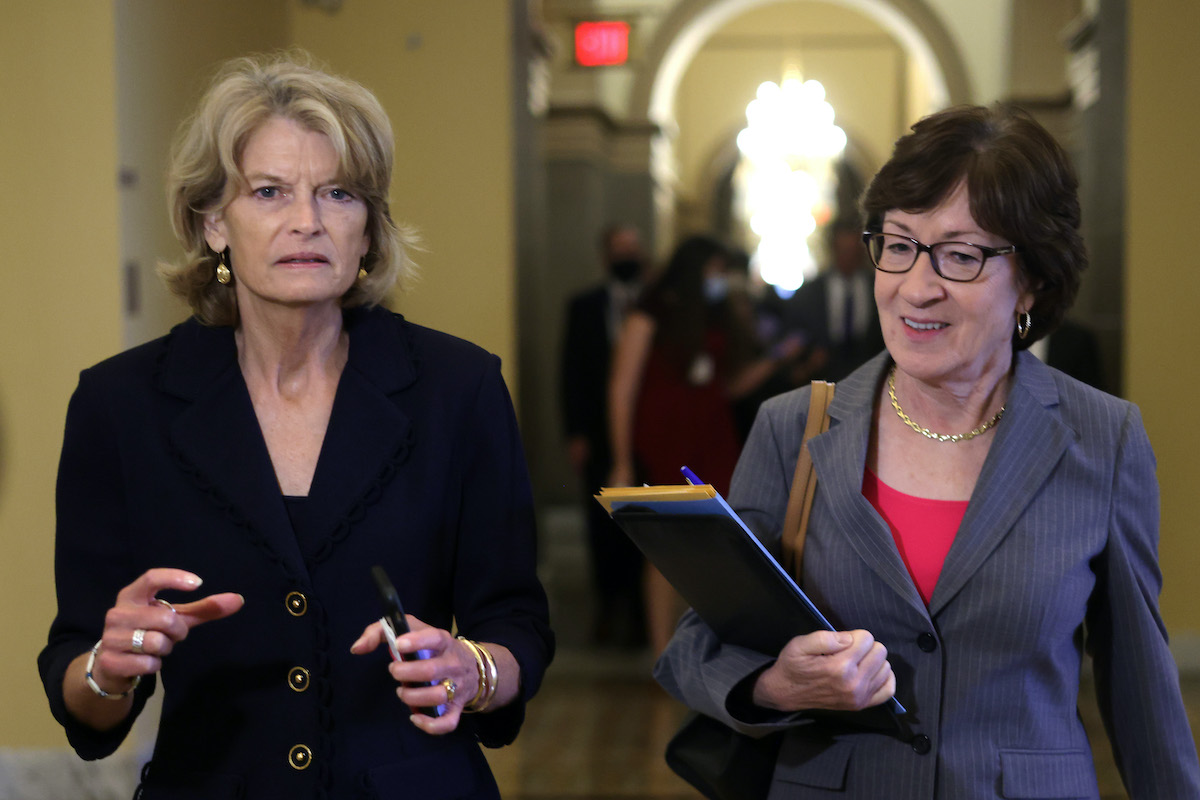Susan Collins and Lisa Murkowski Are Trying To Present Themselves as Reproductive Rights Heroes While Actively Voting Against Actual Rights

On Monday, Republicans (and Joe Manchin) voted to block debate on the Women’s Health Protection Act, which would codify abortion rights into law on a federal level. Susan Collins (Maine) and Lisa Murkowski (Alaska) are two Republicans who have frequently tried to present themselves as being champions of women’s rights while simultaneously undermining those rights, working to restrict access to safe and legal abortion at every turn. And that’s exactly what they did Monday.
Collins and Murkowski joined the rest of their party to vote down the WHPA, but shortly before the vote, the pair introduced their own legislation that they presented as an alternative to that bill.
The issue they claim to have with the WHPA is that it goes too far. They say it goes far beyond codifying Roe v Wade and that it would issue federal protections that supersede state and local laws, including religious exemptions. In their press release announcing the bill, Collins specifically mourns for the doctors forced to perform abortions in opposition with their religious beliefs even though, as I’ve noted here before, that is not a thing the WHPA would do. The bill would not force doctors to perform abortions against their will, it simply gives health care providers the “statutory right” to perform abortions, and patients the right to receive them.
Anyway, the bill proposed by Collins and Murkowski is called the Reproductive Choice Act, but it’s clear that they don’t mean choice for people seeking abortions. This is about the choice of states to deny that right. This bill would basically codify Roe v Wade on a federal level while still allowing states and local governments to issue their own abortion bans.
What is the point of that?
Collins and Murkowski (who, by the way, are largely responsible for the makeup of our current virulently anti-abortion Supreme Court) are actually right when they say the WHPA goes beyond codifying Roe, which is a good thing! Roe v Wade was a good start to reproductive health protections but ultimately, pretty limited in the scope, focusing on a patient’s right to privacy. That’s why over the years, we’ve needed the Supreme Court to rule in other cases like, for example, Planned Parenthood v Casey, which took up the “undue burden” of unconstitutional restrictions being placed on abortion providers.
The WHPA specifically bans many of those restrictions still in place in dozens of states, and it does so in a way that can’t be undermined by state-level Republicans. This bill is aimed directly at making it easier for people to access free, convenient abortion care.
Murkowski and Collins’ bill seems aimed at making it look like they’re taking action while doing exactly nothing to protect reproductive healthcare.
(image: Alex Wong/Getty Images)
Have a tip we should know? [email protected]
